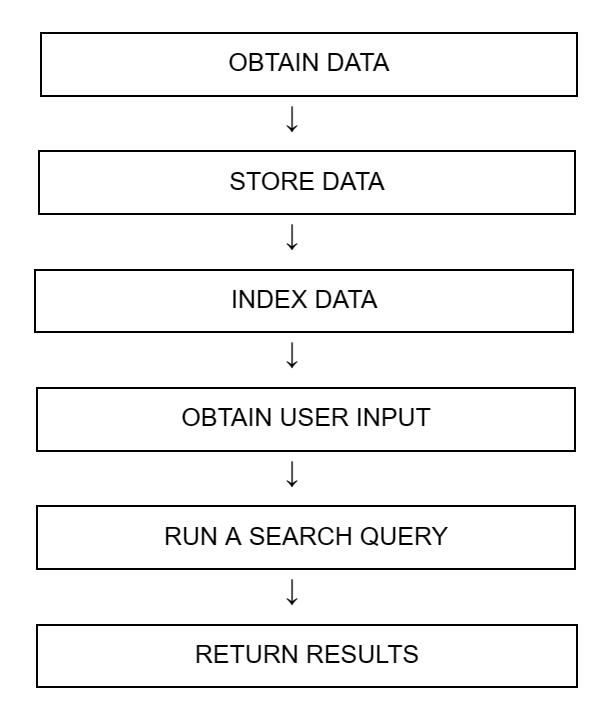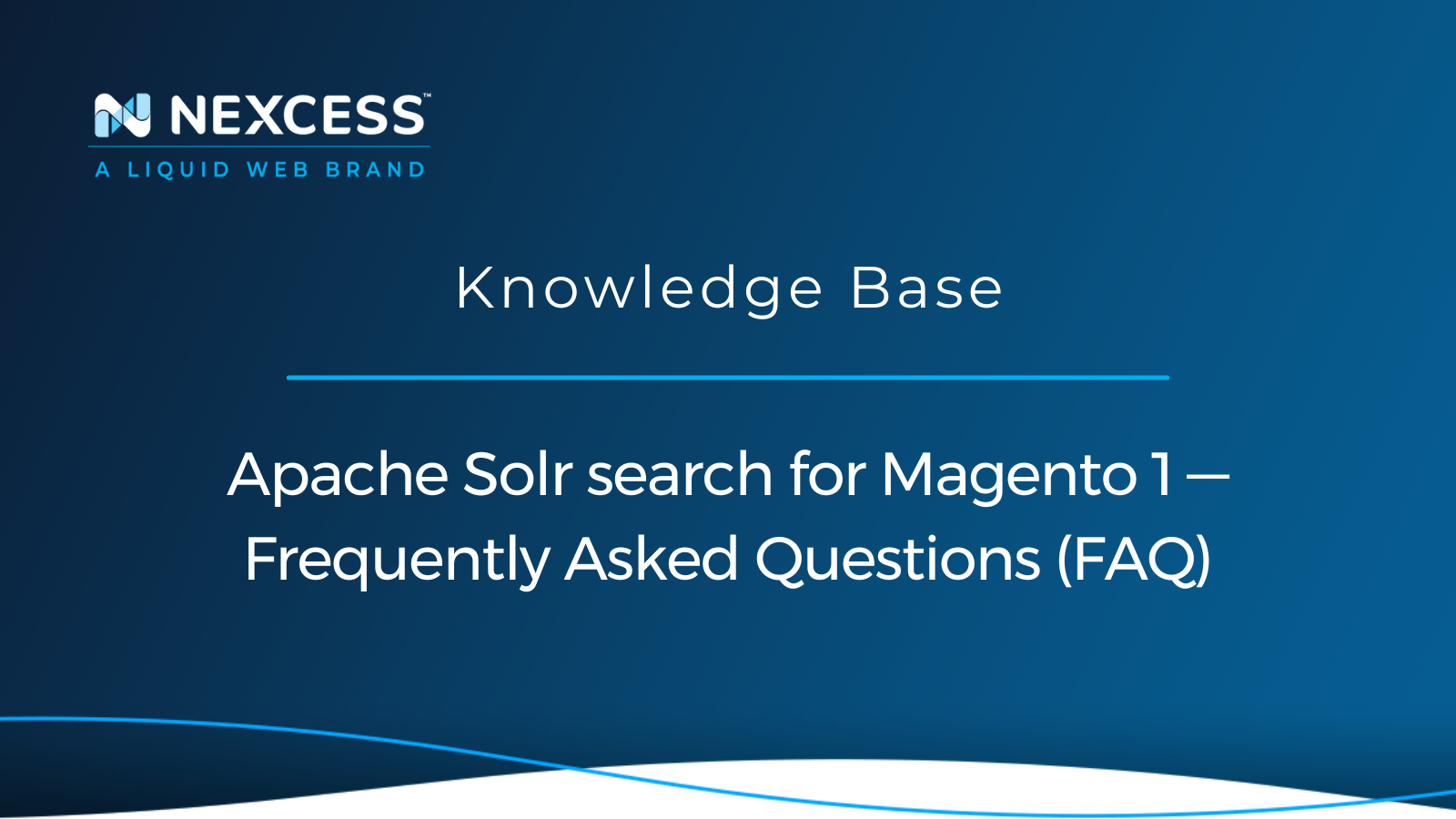Are you considering picking Apache Solr (pronounced “solar”) as your next search solution for your website?
We can help you get a better understanding of what Solr is, how it works, and its list of features. The Solr search platform has an impressive list of companies and organizations using it. Those companies are leveraging the valuable search capabilities you will learn about in this article.
Apache Solr search for Magento 1 — Frequently Asked Questions (FAQ)
We will also cover the most frequently asked questions, so you have all you need to start today. So, let’s get started with an overview of Apache Solr first.
Please note that in order to learn more about Magento search platforms, we recommend reading Magento search: uncovering the benefits of Elasticsearch, SOLR, Sphinx, and MySQL.
What is Apache Solr search?
Solr is an open-source search technology built with Java. It’s based on a powerful search library called Lucene. Thanks to Solr, you no longer need to be a Java developer. Instead, you can run a feature-rich search service right out of the box.
Now that you know what Solr is, let’s cover some of its most essential features.
- Advanced full-text search. It offers a wide variety of powerful matching abilities, such as wildcards, phrases, tokens, grouping, and more.
- Live indexing. It will allow you to see the changes you made almost instantly, thanks to Lucene’s exceptional indexing performance.
- JMX monitoring. Lots of metric data is available to provide deep insight into all of your instances.
- Restful APIs. You don’t need to learn to use Java in order to communicate with Solr. That’s because it allows you to use XML, JSON, and CSV for both imports and exports.
- Scalability and fault tolerance. Since it was developed on top of Zookeeper, it’s easy to scale, distribute, and replicate.
- Administration. It has a user-friendly interface, allowing you to manage all Solr instances. The ease of use makes tasks like viewing logs and updating documents a true breeze.
- Security. Solr comes with SSL, authentication, and role-based authorization. It’s regularly updated as well.
- Plugins. You can further increase its functionality with optional extensions. Some of these include additional format support, search result clustering, and much more.
How does Apache Solr search work?
You could be wondering how exactly Apache Solr works? Like most search platforms, Solr goes through the following steps:
- Obtaining the data on which searches will be performed.
- Storing and converting the data in a suitable format for best performance.
- Analyzing and indexing the data to improve search speed and then storing it in a database.
- Obtaining user input and creating a query object.
- Running a search query to check the database for the query object.
- Returning search results to the user, ranked and in a proper format.
See the diagram below for a better understanding of this process:

Common Apache Solr terminology
While reading about Apache Solr search, you will likely run into phrases like “instance” or “shard.” It’s crucial to get a good grip on these basic concepts as soon as you start. So read on to learn what each of them means.
- Instance represents each server in the Java Virtual Machine (JVM).
- Cores can be assigned to each instance.
- Home means the home directory.
- Shard is a part of a group of replicas in an index.
- Node represents an individual Solr instance.
- Cluster is the combination of all instances.
- Collection is the cluster’s logical index.
- Replica means a copy of a shard.
- Leader is a replica that distributes Solr cloud requests to other replicas.
Apache Solr configuration files
Wondering where the Solr configuration files are and what each of them is for? We made the following table for your convenience:
| solr.xml | Solr cloud information, it helps with identifying cores. |
| solrconfig.xml | Core configurations for indexing, request handling, responsive formatting, and memory management. |
| schema.xml | Information about fields and field types. |
| core.properties | Used for core discovery. Adding this file to a directory makes it a core directory. |
Frequently Asked Questions (FAQ)
Below are some of usual questions that arise regarding the Apache Solr search platform. If you cannot find the answer you seek below, you can always visit the following URL for even more answers:
How does Apache Solr search compare to MySQL full-text search?
Solr provides more features and excels in all areas when you compare the two. Most importantly, Solr supports two additional search types, like and combined. Other features include result correction, suggestions, clustering, attribute weight, localized character support, and word delimiters.
Is Solr subject to security threats?
The software itself is regularly updated and follows the best security practices. Just ensure placing it in a secure environment with controlled access.
Is Solr schema-less?
Yes, in the sense that you don’t have to define the fields upfront. Instead, the schema is just used to define field types. But you can also use it to determine field types from field values. In that case, they are automatically added to the schema.
How powerful is Solr? Can it handle high traffic volumes?
It’s powerful enough to handle high-traffic search applications used by Netflix, Instagram, CNET, and many other big names. That’s more than enough to prove its worth.
Are there any requirements for running the Apache Solr search platform?
The latest Solr version requires you to install Java 8. Most older versions, which are compatible with Magento 1, work well with Java 1.6. That being said, we always recommend updating Java to its latest version. It’s much more secure and efficient that way.
Web development references for Apache Solr
In addition to the information provided in this article, we've compiled the following list of Apache Solr learning resources:
- https://github.com/apache/solr
- https://solr.apache.org
- https://sematext.com/guides/solr
- https://www.tutorialspoint.com/apache_solr/apache_solr_quick_guide.htm
- https://r-martins.github.io/m1docs/guides/m1x/other/ht_magento-solr.html
Apache Solr Conclusion
You should now have a clear picture of what Apache Solr is and how it works to improve search functionality for your website. Therefore, we recommend it as one of the best search solutions out there. Remember, most Magento websites can benefit significantly from a search platform upgrade.
Nexcess is part of the history of the Magento platform
Most Magento hosts can offer hosting that runs PHP code and MySQL databases. What makes Nexcess special is all of the features we add on top: dedicated IP addresses, autoscaling PHP workers, and PCI-compliant hosting.
We’ve been fine-tuning Magento performance since it was built and we’re committed to the platform.
Are you ready to level up your Magento hosting experience? Then, switch to Nexcess today — and let us show you what Fully Managed Hosting truly means. The next level of speed, security, and scalability is waiting for you at Nexcess.
Recent articles
- Full page cache and Redis cache management using WP-CLI
- How to resize your Nexcess Cloud account
- Enable CDN: Nexcess CDN access in the Nexcess Client Portal



